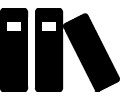

How can we change from 'having' to do something to 'choosing' to do something?
As human beings, we live in a world of to-dos. In order to succeed as an employee, a family member, a partner, or a person, there are certain tasks we must complete.
In the face of these looming responsibilities, it is easy to slip into a state of victimhood. Feelings of dread and frustration occur when we feel weighed down by the responsibilities that come with simply being alive.
While feelings of fatigue, overwhelm, and, let's be honest, self-pity are a normal part of daily life, there is a line between acknowledging these feelings when we experience them and identifying with them fully. When we start to take on the weight of our responsibilities as a burden that is part of our identity, we start to shift into the 'victim mentality'.
This victim mindset is perfectly encapsulated in the phrase ‘I have to do this’. We spend our days doing things we ‘have’ to do. Going to work, taking care of the family, cleaning the kitchen. Driving, cleaning, paying taxes, texting people we know, feeding the dog.
We have to do this, which means we can’t do something that we want to do. We have to. The word ‘have’ completely changes the sentence. Having to do something means we gave up our power of choice, and we are now doing something regardless of if we want to or not.
Think about the difference between ‘I have to’ and ‘I want to’. Changing one word completely changes the energy of the sentence. Different meaning, different energy, different way of approaching the situation.
Imagine if we said ‘I choose to’ instead of ‘I have to’. How much would that change how we live our lives? While the simple fact is that there are things in life that we 'have' to do, we can change how we feel and the way we approach these things by bringing in the power of choice.
Everything is a choice. Have you ever asked someone, ‘Well, why don’t you have the time? Can’t you just skip … for today’? Usually, the person you are talking to will say, ‘I can’t skip it, I have to do it. I don’t have a choice.’
But is that really true? What would happen if you didn’t pay your taxes, or clean your kitchen, or take care of your family? What would happen if you didn’t go to work?
Your mind probably just filled with all of the horrible consequences of not doing something. Knowing all the bad things that will happen if you don’t pay your taxes, clean your kitchen, or take care of your family, you will decide to go ahead and do those things, even if you don’t really want to.
Do you see how powerful that is?
Everything is a choice. No one is forcing you to pay your taxes (no, not even the IRS. All they are doing is adding more consequences to the list of things that will happen if you don’t pay them).
No one is forcing you to clean your kitchen (although that pile of dirty dishes is a pretty gross consequence if you don’t), and no one is forcing you to take care of your family (but their unhappiness if you don’t is, again, another item on the list of possible consequences).
Everything is a choice. Knowing what the possible consequences of not doing something will be, you choose to do it. It may not be your favorite choice, and you may not like it, but it is a choice nonetheless. You choose to do the thing, because the consequences of not doing the thing far outweigh your unhappiness when you actually do the thing.
You go to work, because you know if you don’t go, you will get fired, lose your money, and life will be harder than it is now. So you choose to go. You could just as easily choose not to do the thing. But all those things that you ‘have’ to do are all really just choices you make, because you know what will happen if you make the opposite choice.
So what would your life be like, if you took your 'have to do' list and turned it into a 'choose to do' list? If you acknowledged that you allowed this moment to come. You created your schedule, chose your commitments, and made a choice. You may not want to pay your taxes, you may not want to clean the kitchen, go to work, or feed the kids. But you choose to. You choose to, knowing what will happen if you don’t.
Reframing our thoughts is a powerful tool. Our thoughts create our realities and impact the way we feel about the life we are living. Stepping out of the victim mindset means inviting in empowerment, and utilizing our ability to choose does just that.
So reframe the thought. Not every choice you make has to make you beautifully happy. You don’t even have to like every choice you make. But imagine a life in which you acknowledged that everything is a choice. Wouldn’t it be a beautiful life, when you are no longer forced to do anything?
That power, that capacity, and that opportunity, starts with you. Here and now, in your own mind. When you find yourself stuck in the ‘have tos’, try reframing them into 'choose tos’. Then watch. What will happen, when you no longer have to do anything, and everything is a choice?
How do you step out of the victim mindset? Share your answers in the ReikiCafe Community Facebook group!
All the love,
Isabel Wells
ReikiCafe Professor
www.reikicafeuniversity.com



Sign in/up with Facebook
Sign in/up with X
Sign in/up with Linkedin
Sign in/up with Google
Sign in/up with Apple


Wouldn't it be a good idea to create a course?
